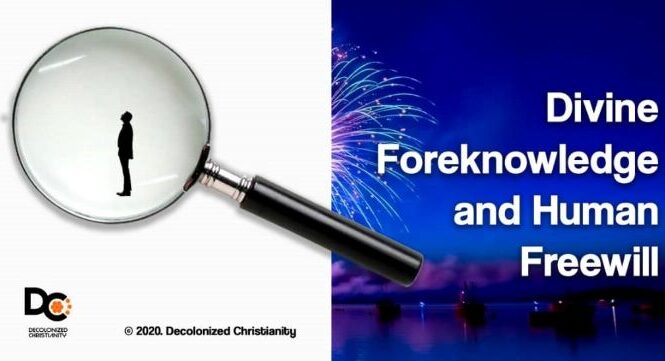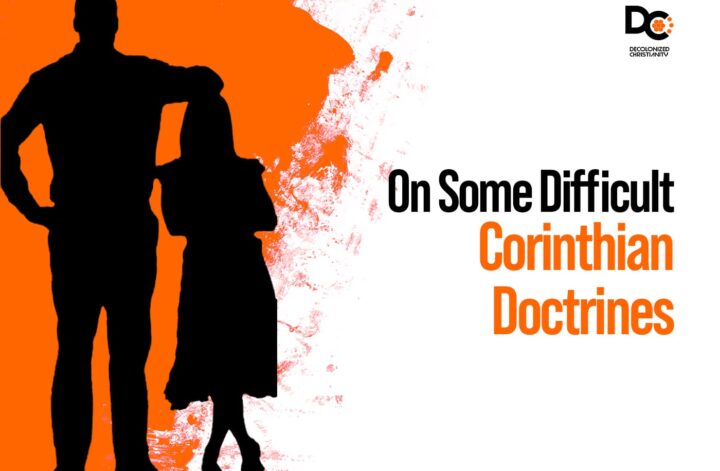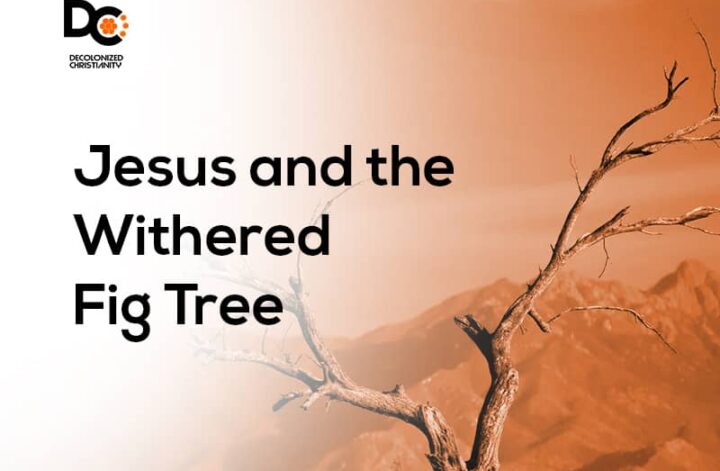What is the Problem?
The biggest problem with theistic determinism is that it undermines morality as we know it. It appears to dissolve all grounds for holding anyone responsible for an action, good or bad. For example, let us suppose that God knows that Ade will assault the president tomorrow. Well, when tomorrow comes, Ade cannot avoid assaulting the president. Why so? Well, if Ade could avoid assaulting the president, it would mean that God did not know correctly, putting his omniscience in question; this is not a logical possibility.
On the other hand, even if Ade assaults the president being fully convinced that it is entirely his intent so to do, this will still be a morally problematic situation. What and how Ade feels about his action – whether he thinks it is his choice – is almost completely irrelevant because, ultimately, it would be God’s foreknowledge that sets events, including Ade’s thoughts and feelings, in motion to ensure the achievement of the outcome of assaulting the president. Hence, God ought to be responsible for the assault on the president with Ade being a mere instrument. Theistic determinists, however, draw a different conclusion claiming that Ade would be responsible, and God can thus rightly judge him. Part of the motivation for this conclusion is determinists’ desire to be consistent with Biblical teaching on God’s justice and righteousness. This is where defenders of free will often bring up the imagery of robots to describe this situation because of the striking resemblance. An infallibly designed robot, one with no chance of doing contrary to its programming, is analogous to Ade. If such a robot kills, we cannot morally blame the robot for so doing. The blame lies with the programmer. The robot would be a mere tool for achieving the programmer’s plans.
An Alternative Way of Understanding Divine Foreknowledge
Divine foreknowledge need not entail causation. I say, “need not” because there may be instances of God directing of history that may be construed as involving causation. In all cases, I shall argue that the data strongly suggest that at no point did God cause anyone to do anything contrary to his or her will. We may construe most prophecies as God’s mere announcement of certain future events; though he knows all (future) events, God often announces some events through his prophets for whatever reasons he may have, and this act does not have to mean that he is personally responsible for causing the events to happen. One may ask, “what then guarantees that the prophecies will unfailingly come true?” There are alternative answers to the more common deterministic answer of divine causation.
In The Only Wise God, William L. Craig marshals an argument that answers the question of mechanism and also shows the compatibility of divine foreknowledge and human free will. Let us look closer, using an example. Did God know that you will be reading this essay right now? Yes, he did. How so? Precisely because you are reading it now! And here is the crucial point: if you had chosen to do something else, then God would have foreknown exactly what it is you would do; the content of divine foreknowledge would have been different, but it would be correct. Notice that I said, “if you had chosen to do something else” implying that you had a real choice. The fact is that a human can only freely make one decision per each decision-making moment, and whatever that ends up being in time, God foreknew. Professor Craig distinguishes between two kinds of order. There are chronological and logical orders of events. The logical order requires that there be an object of God’s foreknowledge, something to foreknow, which is the act of reading this essay right now. Logically, the object of divine foreknowledge precedes the knowledge. (“Precedes” here is not to be taken temporally but purely as logical.) The chronological order accounts for the “fore” in “foreknowledge” and derives from the concept of omniscience since an omniscient being must know everything (logically) at once. (Once more, “at once” should not be construed temporally.) The following is a summary: You are not reading this essay right now because God determined that you would read it; instead, your act of reading this now is why God foreknew what you would do at this moment. Professor Craig writes (74): “For God’s knowledge, though chronologically prior to the action, is logically posterior to the action and determined by it. Therefore, divine foreknowledge and human freedom are not mutually exclusive.”
Zooming in on the Logical Order
There is understandably a real temptation to confuse logical order with temporal order. This is evident in the charges that people sometimes bring up. I once was told that by arguing this way, I was implying that there was a time when God did not know something since his act of knowing depends on a future action. A friend specifically once asked me: Suppose that God knows today that Sade will steal an apple tomorrow. When tomorrow comes, how can Sade possibly not steal the apple? This question betrays the fatalist understanding of divine foreknowledge. There are two key issues here. The first is that this charge is assuming that God relates to time linearly as humans do. This is a rather problematic issue that philosophers of time are still fleshing out. Suffice it to say that there is no reason to suppose that God linearly relates to time as we do. Second, the more relevant mistake in the charge above is confusing logical order for temporal order. As intended here, there is no temporality or “timeness” about a logical order. For instance, consider the following simple argument (Professor Craig provides a similar one):
1. 6 = 2 x 3
2. 6 = 7 – 1
3. Therefore, 2 x 3 = 7 – 1.
Obviously, there is a logical order to the argument. But it is not as though premise 1 is first true in time, followed by the truth of premise 2 later, so that the conclusion is also true at some still later time. Instead, both premises and conclusion are not only simultaneously true but have been true for all time and will always be!
What about Sade? Sade would be heartened to know that divine foreknowledge does not fate her to stealing. My friend mixed up the order of things. On the view that I am presenting, here is how things would unfold: If Sade steals an apple on that day, God would have foreknown this act. If instead Sade acts like the good girl that her parents raised her to be and chooses not to steal an apple, God would have foreknown this too. Phrased differently, Sade would not steal because God foreknew it; rather, her act of stealing would inform the content of divine foreknowledge.
A Biblical Witness?
At least one clear biblical witness, in 1 Samuel 23, supports the view above. David is on the run from king Saul who seeks to kill him. David then hears news that the Philistines are fighting against and looting Keilah. Being a man in hiding, he seeks Yahweh’s counsel whether he should go rescue Keilah. Yahweh tells him to go, and he does. Following the rescue of Keilah, however, king Saul hears word that David is in Keilah. Now, Keilah was a fortified town. Saul reasons that David has trapped himself by going to a town with gates and bars, and Saul pursues David. When news gets to David that Saul is coming for him, Davis decides again to seek God’s counsel. Here is the account (9 – 15, emphasis added):
When David learned that Saul was plotting against him, he said to Abiathar the priest, ‘Bring the ephod.’ David said, ‘Lord, God of Israel, your servant has heard definitely that Saul plans to come to Keilah and destroy the town on account of me. Will the citizens of Keilah surrender me to him? Will Saul come down, as your servant has heard? Lord, God of Israel, tell your servant.’ And the Lord said, ‘He will.’ Again David asked, ‘Will the citizens of Keilah surrender me and my men to Saul?’ And the Lord said, ‘They will.’ So David and his men, about six hundred in number, left Keilah and kept moving from place to place. When Saul was told that David had escaped from Keilah, he did not go there.
The most conspicuous observation here is that something God foreknew did not come to pass. And the exact reason it did not come to pass is precisely because of human actions. When David heeded God’s counsel, Saul chose not to pursue. That is, God’s announced foreknowledge that the people of Keilah will hand David over to Saul does not involve divine causation; rather, in this case, it is a mere possibility whose actualization depends on human actions. Interestingly, the writer of this passage and David did not freak out in any way that something God foreknew was in danger of not happening. Indeed, the point of the portrayal was the opposite: God gave David a chance to contribute to what would be.
Work Cited
Craig, William Lane. The Only Wise God: The Compatibility of Divine Foreknowledge and Human Freedom. Wipf and Stock, 1999.




